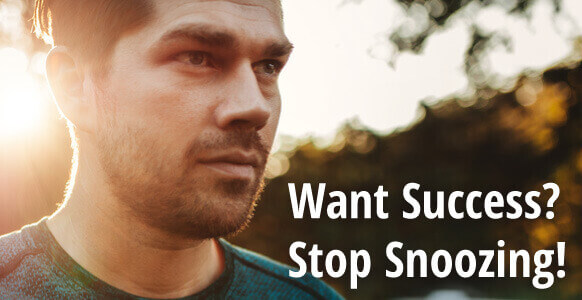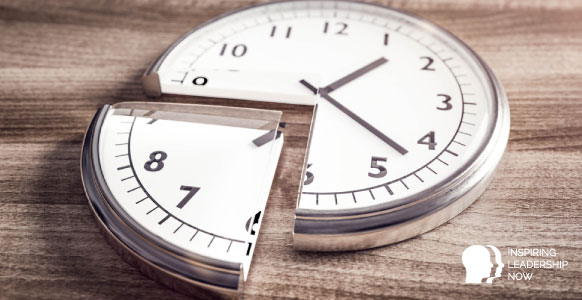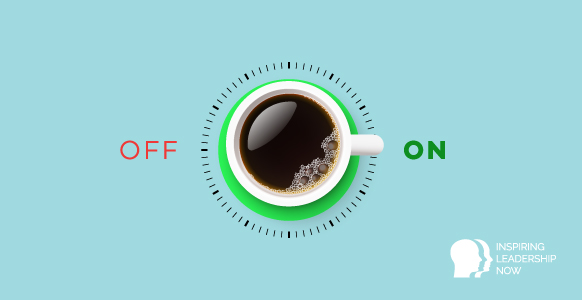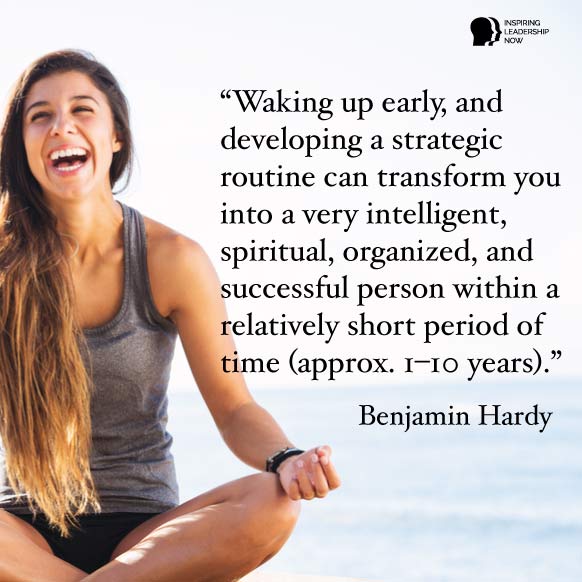Last updated: 29 August 2019

Confidence begins with a promise to yourself, and this promise starts in the first 5 minutes of your day.
The first 5 minutes of pain on hearing the alarm and actually getting yourself out of bed (at the time you said you would) sets you up with a confident, positive and productive start to your day. And consequently gives you a confident, positive and productive start to the rest of your life.
In 23 Smart Ways To Increase Your Confidence, Productivity, and Income, best-selling author of Willpower Doesn’t Work, Benjamin Hardy, identifies the first 5 minutes of your day – most specifically getting up when the alarm goes off – as the most significant precursor to focusing on the major things in your life. In turn, this affects your confidence, productivity and success in all aspects of your life.
In setting your alarm for an early rise, you’re setting a contract of agreement with yourself. This is the promise. Your contract is to go through the 5 minutes of pain in the process of getting yourself up and out of bed – no matter how cold it is outside – to both enjoy and benefit from the most productive hours of your day.
Psychological research shows that the first 3 hours of your day are your most effective – where you’re at your most focused. Hardy advises that you capitalize on this 3-hour window by bearing the pain of the early rise and attending to those things, or that thing, that’s the most important to you.

Most of us, however, tend to hear the alarm, sometimes groan (albeit internally) and hit “snooze.”
Sound familiar?
Well, by hitting snooze, or just by not getting up when you said you would, you’re effectively breaking the promise to yourself. You’re breaking the contract you made with yourself when you set that alarm, knowing that you needed to get up and do those things, feel good, and get productive at the start of your day. By not honoring this promise, you’re significantly undermining your productive output, your potential prosperity and fundamentally you’re eroding your confidence.
How so?
In his article, Hardy identifies 3 essential problems with not sticking with this promise.
1. Breaking Trust Erodes Confidence
Hardy states that breaking your promise to yourself is in effect lying to yourself. This is bound to affect your confidence because, bottom line, who can trust a liar? By deceiving yourself you’re setting up a state of inner conflict, thereby eroding your self-trust.
Self-trust is synonymous with self-confidence.
It works in a cycle: confidence is an effect of trust. Your earn your own trust and generate confidence by doing what you said what you were going to do. In other words you keep the promise. Get up when the alarm goes off! Psychological research in this field finds that confidence is a result of self-trust, not a cause.
In other words, confidence comes from doing what you said you were going to do. Confidence comes from trusting yourself, rather than the other way around.
You’re confident because you trust yourself. You don’t trust yourself because you are confident.
Trust is the key factor.
The great thing then about confidence is that you can build it by cultivating trust. You get to empower yourself by shoring up your trust in yourself. Fundamentally, that simply means that you keep your promises to yourself.
2. Making Decisions When You’re Half Asleep Is Never A Good Idea!
Making an important decision at the time when you’re unclear, foggy headed and groggy is not the time to be doing so!
Deciding or changing the time to get up when you’re in a sleep-fog is an example of making an important decision at a time when important decisions should not be made. By comparison, you would not rationally make important fiscal decisions at a time when you were in a compromised mental state, equally the same goes for changing the important promise you made to yourself.
When you set the alarm, or made the decision to set the alarm for 6am, you made it with good reason, probably while you were feeling clear and well intentioned.
Again it comes down to trust; in the morning, at the 6am wake up call, rather than hitting the snooze button, trust yourself. You made that contract with yourself for good reason. Now, half asleep at 06:01 is not the time to renegotiate the contract.
By responding to the alarm and getting up you win the contract, and the dividend it pays is in the confidence and the productivity you get as a result. This carries over not only into your day but extends out into how you do life.
By reacting to the alarm and not getting up you lose the bid, you lose the trust and by extension lose the confidence and productivity slips away. By the same token, this also carries over not only into your day but extends out into how you do life. Benjamin asks that if you start your day in this reactive manner what kind of vibe are you setting for the rest of your day, and the rest of your life?

3. 5 Minutes Of Pain For A Big Gain
The discomfort you feel on waking to the alarm is exceedingly short lived. It will pass in minutes or even seconds. In the very moment you hear the chime or the tone it may seem overwhelmingly painful, however this is no reason to re-negotiate on your contract with yourself.
What to do?
Get proactive and make a getting-up-strategy. Get in the shower. Go for a walk. Whatever you do change your location. The sweet, slumber-nest of your bedroom will only tempt you back to bed.
Resist!
And the best way to resist is to effect a change in your environment. The unconscious effect of the bedroom, and staying in the bedroom is that it promotes the desire to sleep. Changing your location then switches this desire down, and off. Flipping on the light has a beneficial effect in changing the “sleepfulness” into wakefulness.
If switching on the light seems like too much invest in an alarm clock that wakes you up with a gradual light. Before you know it, the light is on and you’re awake. It is especially good on those dark winter mornings. It is a proven psychological fact that changing your environment enhances your mindfulness: change location and you switch on your brain receptivity, by changing your environment you’re then automatically choosing a proactive mindset to start your day.
When the alarm goes off don’t overthink anything. Before your mind kicks-in with its protestations and excuses (they may seem like reasons, but honestly they’re excuses) get going with your getting up plan. The longer you lie in bed the harder it is to get up. It’s a research proven fact.
Procrastination is the thief of time!
The mind trap and its stories and excuses are exceedingly seductive, especially when you’re half asleep and snuggled up in bed at 6am on a cold, winter morning! However, don’t be fooled. Unconsciously, by indulging in believing the mind-chatter, you can self-sabotage your opportunities to succeed and thrive.
As a counterpoint to this procrastination and self sabotage, try getting down to your real WHY – your real reason for getting up and getting out of bed in the morning. Get in tune with your true motivation in life, about what you want and why you want it.
The trust-confidence cycle can either be a positive one or it can be a negative one. It can be a self-fulfilling prophecy. If you keep your promises to yourself, you’re setting up a relationship of trust that grows your confidence and in turn grows your trust, which again grows your confidence.
It is a positive growth cycle. On the flip side, breaking your promises to yourself undermines your trust and erodes your confidence, leaving you feeling less trusting of yourself and altogether at a loss of confidence.
Where you put your attention grows. Put your focus into cultivating the trust cycle and it will grow. Either way, positive or negative, the prophecy is fulfilled. Set your expectations and set them positive, because according to the Expectancy Theory, you get in life what you expect you will. That’s the psychological definition of the self-fulfilling prophecy.
Remember: how you live this day of your life defines how you live the rest of your life.
When the mind-chat kicks in with excuses and reasons not to get up, or not to do the thing that is really important to you, it’s worth bearing in mind that believing and acting out of these stories can lead to unconscious behaviours and habits that keep you stuck. Rather than either indulging or squashing the mind chatter pay attention to it as an observer. Observe the excuses and the procrastination, or the thoughts that keep you from engaging fully with your focus. Noticing makes all the difference: with noticing comes awareness. With awareness comes change. With change comes opportunity. Take note. Create the opportunity.
So when the alarm goes off, get up.
Yes this takes a little discipline.
Yes this might take a little time.

One day at a time. One morning at a time. It can be done.
Trust yourself.
You got this.

